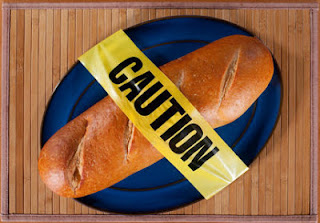Are you ready to kick off 2014 on the road to GREAT HEALTH? This is a great place to start:
Free Gluten Webinar with Dr. Tom O'Bryan: "Now That You Know, Where Do You Go?"
Registration for the follow-up free webinar for The Gluten Summit is now open!
The Gluten Summit had lots of great information, so should this 90 minute one. The theme is diagnosis. It will leave off where the Summit left off with answers to such questions as:
What tests should I take to see if I have a disorder?
How do I convince my doctor to order the tests?
Could it be gluten? Or dairy? Or another food triggering symptoms?
When should I take the tests?
How do I get them?
How do I interpret the results?
What if my results come back positive for a gluten-related disorder?
What testing options are available outside of the U.S.?
Not everyone will take the same route, so Dr. Tom O’Bryan of the Dr.com will cover the step-by-step instructions for as many paths to diagnosis as possible!
DATES: January 30 - February 2, 2014
TIME: Begins January 30,10:00 A.M. U.S. EST, available 24/7 through February 2
LENGTH: 90 minute audio with video
REGISTRATION: FREE!
CLICK THIS LINK TO REGISTER
https://gg110.infusionsoft.com/go/tgs/drcharlesparker/
You don’t want to miss this FREE, online event available from January 30 - February 2!
What tests should I take to see if I have a disorder?
How do I convince my doctor to order the tests?
Could it be gluten? Or dairy? Or another food triggering symptoms?
When should I take the tests?
How do I get them?
How do I interpret the results?
What if my results come back positive for a gluten-related disorder?
What testing options are available outside of the U.S.?
Not everyone will take the same route, so Dr. Tom O’Bryan of the Dr.com will cover the step-by-step instructions for as many paths to diagnosis as possible!
DATES: January 30 - February 2, 2014
TIME: Begins January 30,10:00 A.M. U.S. EST, available 24/7 through February 2
LENGTH: 90 minute audio with video
REGISTRATION: FREE!
CLICK THIS LINK TO REGISTER
https://gg110.infusionsoft.com/go/tgs/drcharlesparker/
You don’t want to miss this FREE, online event available from January 30 - February 2!
To Your Health
Dr. Barbara


